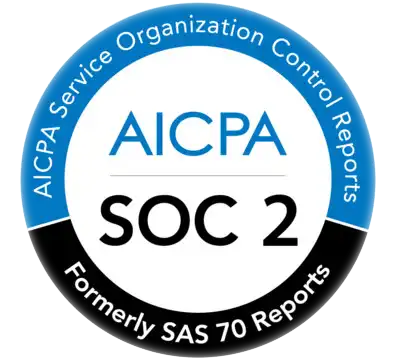When the Corporate Transparency Act (CTA) made beneficial ownership reporting a requirement for most businesses, it’s natural if you were a little worried. The reports require you to submit the personal information – including full legal names and addresses – of anybody who has a 25% stake or more in your company.
Then there’s the “substantial control” issue. An individual doesn’t need to directly own at least 25% of your business to be a beneficial owner. If they hold substantial influence over how your company does business, they need to go on your beneficial ownership information (BOI) report too.
That’s complex enough for a domestic business, especially one that has a complicated ownership structure.
Complexity magnifies multiple times over when you operate a multinational company. Now, you don’t only have the Financial Crimes Enforcement Network’s (FinCEN’s) BOI reporting to consider. You have to somehow align your CTA reporting obligations with a varying global operation that operates across several regulatory landscapes. So, how do you handle BOI reporting for multinational corporations? The answer comes after you identify the challenges inherent to the process.
Key Challenges in Beneficial Ownership Reporting for Multinational Corporations
Complexity, and how you deal with branching ownership structures, lie at the heart of most of the challenges related to BOI reporting for multinational corporations. That complexity can stem from one (or a combination of) the following.
Determining Beneficial Ownership in Complex Structures
It’s all so straightforward for a domestically-owned company in which all of the beneficial owners are based in the United States. You gather each individual’s details and add them to the report before filing with FinCEN. The job is done, assuming you don’t have to account for entities like trusts and subsidiaries coming into play.
Therein lies a challenge for a multinational company.
Imagine you have a multinational business with ownership divided among individuals and several trusts. The trusts create a BOI reporting problem. On the surface, the trust is recorded as the legal owner or part-owner of your business. That isn’t the case for BOI reporting – you have to dig into the structure of that trust to determine the beneficial owner you report to FinCEN. Naming the trust alone isn’t enough. And when that trust is stationed overseas, you may find it incredibly difficult to access the information of the person who controls the trust that has invested so heavily in your business. Similar rules apply to subsidiaries and similar entities that may have some form of controlling stake in your business.
Let’s look at another example – joint ownership.
You may have two shareholders in your company (one in the U.S. and another overseas) who each own 20% of the business. Again, that doesn’t seem to put either of those people in FinCEN’s crosshairs. They fall below the minimum 25% ownership requirement for BOI reporting. But what if one of those individuals gives the other control over their voting power in your company? A “substantial control” issue comes into play, with the person who controls the voting power being classed as a beneficial owner even though they don’t physically own more than 25% of your business. These types of voting agreements can become common as your multinational corporation expands to allow people to buy shares from different countries. You have to dig into the real control versus the on-paper control to find your beneficial owners in these cases.
Those are just two examples. The takeaway here is that BOI reporting for multinational companies often becomes enormously complex when you start adding trusts, other business entities, and customized voting structures into the mix.
Navigating Global Regulatory Landscapes
In a perfect world, every country would follow the same beneficial ownership rules that FinCEN implements in the U.S. Some do. The U.K., for example, shares America’s classification of a beneficial owner as somebody who holds 25% of a company’s shares or an equivalent amount of its voting power. You’ll also see crossover in Australia, Ireland, and many other countries.
But the more countries you enter, the more likely you are to come across global regulatory mismatches. The United Arab Emirates (UAE) has the 25% rule. But it also has a rule that states any changes to beneficial ownership information need to be reported within 15 days of those changes being made. It’s 30 days in the United States. Assuming the 30-day rule applies to both countries would lead to receiving a written warning from UAE authorities even though everything is perfectly fine in the U.S. Multiple update-related offenses lead to fines and trade license suspensions in the UAE.
It’s these kinds of regulatory differences – which are often so minor – that can trip you up when handling BOI reporting for multinational corporations. It’s not just the CTA and FinCEN’s rules by which you abide. Every country where you operate has its own regulations and you have to stay on top of them to stay compliant.
Data Privacy Concerns
Beneficial ownership reports include data about people. That’s the entire point – FinCEN wants to know who’s running your corporation, which means gathering legal names, addresses, and identifying information like Social Security numbers. Such transparency may help FinCEN track down those few beneficial owners who use their companies for illicit actions like money laundering. However, for a multinational corporation, it creates data privacy concerns that may threaten an individual’s right to privacy.
The challenge for your multinational company doesn’t lie with FinCEN here. That organization collects and stores data pursuant to federal and state laws, even when collecting foreign information. Rather, the challenge comes from how you collect and share information about your beneficial owners to FinCEN. For instance, you may use a third-party supplier to collate the data you need to collect, which is especially useful for complex ownership structures. That third party is another cog in the BOI machine for which you have to account. You can trust yourself and FinCEN to keep data safe. But can you trust this supplier you’re using to make BOI reporting for multinational corporations simply from a data privacy perspective?
Effective Strategies for Multinational Corporations to Address Beneficial Ownership Reporting

With multinational expansion comes a more complicated BOI reporting process. However, the challenges that lead to these complications aren’t insurmountable as long as you have the right strategies to handle BOI reporting for multinational companies.
Centralize Data Management
Much of the complexity that arises from BOI reporting for multinational companies stems from scattered information. Take the trust example we shared earlier. Those controlling the trust may have followed all of the rules in their country of origin to create the entity. But the data you need wasn’t shared with the American arm of your business – it didn’t need to be – meaning it’s stored elsewhere.
You have to go and find it.
Multiply that problem across multiple trusts and subsidiaries and you get a data silos forcing you to bounce around different entities to get the information you need for a BOI report. Centralizing your beneficial ownership data with appropriate BOI reporting technology offers a solution. BOI Agent is a good example – it provides a dashboard through which you can store all of the beneficial ownership data relating to your main company and the many multinational entities and individuals who have controlling interests in one place.
Leverage Technology Solutions
Speaking of taking a tech-centric approach to handling the complexities of BOI reporting, the right tools can help you overcome the multinational challenge. Artificial intelligence (AI) can streamline the reporting process, for instance. Machine learning algorithms allow you to auto-populate fields for every beneficial owner for whom you need to record information.
An example comes from document scanning. The right AI tool could scan a driver’s license or passport – which provides some of the unique identifying information FinCEN requires – and automatically populate BOI report fields using that information. Technology solutions streamline the data-gathering process. Your job as the reporting entity becomes easier. Plus, your beneficial owners only have to provide basic details and supporting documents before allowing the AI to do its work to properly populate your BOI reports.
The future may see the introduction of blockchain technology to showcase proof of business ownership. You may soon be able to create a single accessible data layer above your existing business structures that offers real-time accounts of ownership information. Changes to that blockchain could lead to automatic updates of your BOI reports, with reporting-specific software then sending the amended documents to FinCEN in near-real-time.
Collaborate With Local Experts
On the non-tech side of things, working alongside people who understand the ins and outs of beneficial ownership reporting for each country in which you operate is still essential. Even with automation – such as BOI Agent’s automatic compliance updates – you can’t underestimate the importance of the human touch.
Ideally, you’ll have legal and compliance professionals in each of your company’s territories. They’ll help you get to grips with the specific rules you need to follow for reporting in that territory, along with how those rules align (or otherwise) with FinCEN’s BOI reporting guidelines. It’s with these professionals that you’ll get ahead of compliance differences such as the updating deadlines in the UAE as compared to the U.S. that we mentioned earlier.
Develop a Robust Compliance Framework
Staying with the topic of compliance, having an overriding framework in place for ensuring compliance across territories also helps multinational companies overcome BOI challenges. The Financial Action Task Force (FATF) – which the G-7 group of nations established in 1989 to tackle money laundering issues – offers a handy three-step framework:
- Identify – Locate and gather data related to any natural person who has a beneficial or similarly controlling ownership influence over your company.
- Look Beyond the Legal Person – A “legal person” in your multinational company could be a trust controller or the owner of a subsidiary that has considerable influence over your business. Identify the natural person (i.e. the real-world individual who has a controlling stake in the “legal person” entity) for your BOI reports.
- Find the Senior Managing Official – Where no natural person appears to exist, move on to identifying the senior managing official of any entity that has a controlling stake in your business.
FATF’s guidelines cover the steps to take when doing BOI reporting for multinational corporations that have subsidiaries and invite entities other than individual people to invest and gain control. They’re not all-encompassing guidelines, though. We recommend consulting with compliance professionals in each of your countries of operation to create territory-specific guidelines that still feed into an overarching compliance framework.
Overcome Your Multinational BOI Reporting Challenges with BOI Agent

Business growth is great. It’s especially exciting when you enter new territories and watch as the company you created becomes a multinational behemoth. Your task is to ensure that behemoth doesn’t go on a beneficial ownership compliance rampage, which is entirely possible as your company’s ownership structure becomes more complex. The solutions to the three key challenges of structural complexity, differing international regulations, and data privacy concerns we’ve provided here are a good starting point. Now, you need software that helps you implement those solutions. Enter BOI Agent, the market-leading CTA-compliant platform that minimizes BOI reporting errors and transforms a process that can take hours into one that takes minutes. Ready to find out more – Get started with a BOI Agent demo today.






